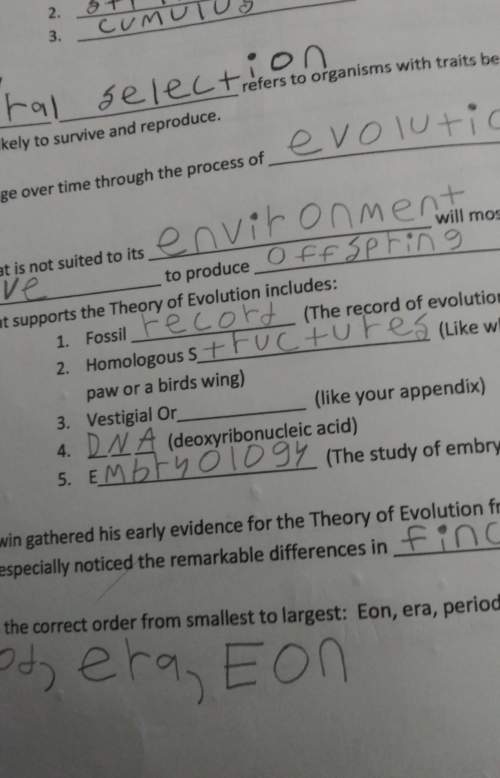
Physics, 11.10.2020 22:01 sierralynnbaldp16d4b
1. A student places a block on a table and hangs one mass from the block. The student lets the block go and
observes the block accelerate toward the end of the table where the mass was located. The student then
places the block on the table and hangs a second, larger mass from the opposite end of the block. The block accelerates in the opposite direction from the first trial. What does this experience demonstrate?
block accelerates in the opposite direction from the first trial. What does this experiment demonstrate?

Answers: 1


Other questions on the subject: Physics

Physics, 21.06.2019 22:50, peno211
Moon effect. some people believe that the moon controls their activities. if the moon moves from being directly on the opposite side of earth from you to being directly overhead, by what percentage does (a) the moon's gravitational pull on you increase and (b) your weight (as measured on a scale) decrease? assume that the earth–moon (center-to-center) distance is 3.82 × 10^8 m, earth's radius is 6.37 × 10^6 m, moon's mass is 7.36 × 10^22 kg, and earth's mass is 5.98 × 10^24 kg.
Answers: 2

Physics, 22.06.2019 00:10, oktacos
The energy released by a chemical reaction can be measured using a calorimeter. when barium hydroxide octahydrate crystals are reacted with dry ammonium chloride inside of a coffee cup calorimeter, the temperature of the 18.00 g of water in the calorimeter decreases from 30.0°c to 8.0°c. the equation for calculating energy absorbed or released by a reaction is: where q is the energy released or absorbed, m is the mass of water in the calorimeter, cp is the specific heat of water, and δt is the observed temperature change. if the specific heat of liquid water is 4.19 j/g·°c, how much energy was absorbed by the reaction?
Answers: 3

Physics, 22.06.2019 09:10, ehehvevsbg
The diagram shows a series of volcanic island and a hot spot determine the direction of movement of the tectonic plate that for the island
Answers: 1

Physics, 22.06.2019 10:50, milkshakegrande101
Asubject in a clinical research trial experiences a serious, unanticipated adverse drug experience. how should the investigator proceed, with respect to the irb, after the discovery of the adverse event occurrence? a. do not report the adverse drug experience to the irb since it is a common adverse experience. b. report the adverse drug experience to the irb only if there are several other occurrences. c. report the adverse drug experience as part of the continuing review report. d. report the adverse drug experience in a timely manner, in keeping with the irb's policies and procedures, using the forms or the mechanism provided by the irb.
Answers: 1
You know the right answer?
1. A student places a block on a table and hangs one mass from the block. The student lets the block...
Questions in other subjects:





Biology, 02.12.2019 00:31


Mathematics, 02.12.2019 00:31

Mathematics, 02.12.2019 00:31


Mathematics, 02.12.2019 00:31




